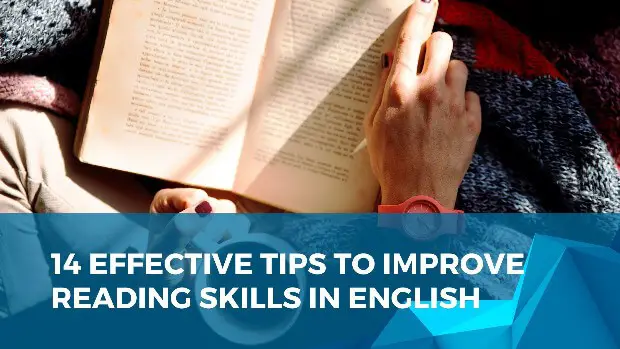Last updated on March 24th, 2023 at 09:31 pm
The IELTS (International English Language Testing System) reading test evaluates your ability to understand shorter or longer texts on everyday topics, ranging from news to opinion and persuasive writing.
The task looks easy on paper, but the structure of the questions and the short time limit makes it difficult to answer many of them in the time given.
To help you prepare better for this test section, we’ve compiled a list of the top 10 tips to improve your IELTS Reading Test results.
IELTS Reading Test Format
Quick Navigation
As we know, The IELTS test has two modules. They are:
- Academic Module
- General Training Module
Reading Test for Academic Module
The Academic Module is one option for those taking a test in English for university admission or an academic program. This Module is intended to assess your ability to read and understand academic texts, such as business, law, science, and technology subjects.
This Module contains three sections. Section one contains one shorter passage, section two contains one longer passage, and section three also contains one longer passage.
It measures your ability to understand academic texts, such as those found in newspapers, journals, magazines, and non-fiction books. It also tests your ability to interpret data presented in graphical form (e.g., charts, tables). This Module uses your reading skills and checks your ability to read informative and analytical texts in an academic context.
Reading Test for General Training Module
If you want to migrate to Australia, Canada, and the United Kingdom, you must participate in the General Training test. Reading tests on the IELTS General Training module are similar to those on the Academic English module, but they also have some important differences.
This Module will assess the conversational English skills you need in social and workplace environments.
This Module also contains 3 sections but is slightly different from the Academic Module. However, section 1 may contain two or three short texts or several short texts; section two contains two texts, and section three contains one long text.
Excerpts from this Module are taken from books, magazines, newspapers, notices, advertisements, and company handbooks. You have to concentrate on all the sections and answer each question carefully.
Let us see the format of the IELTS Reading test in the below table:
| Time | 60 Minutes |
| Questions | 40 |
| Sections | 3 |
| Mark | 1 (each correct answer) |
| Score | Band 1-9 |
Now let us know about the question types of the IELTS Reading test in the below table:
| Questions type-1 | Multiple choice |
| Questions type-2 | Identifying information |
| Questions type-3 | Identifying the writer’s views/claims |
| Questions type-4 | Matching information |
| Questions type-5 | Matching headings |
| Questions type-6 | Matching figures |
| Questions type-7 | Matching sentence endings |
| Questions type-8 | Sentence completion |
| Questions type-9 | Summary, note, table, flow-chart completion |
| Questions type-10 | Diagram level completion |
| Questions type-11 | Short-answer questions |
10 Tips to Prepare for the IELTS Reading Test
Now it’s time to look at the top 10 tips to prepare for the IELTS Reading test:
1. Focus on Your Vocabulary
As with any exam, a large part of success in an IELTS test is tied to your vocabulary—which means you’ll want to spend a lot of time studying. Before starting test preparation, you must build your vocabulary before diving into practice questions and writing pieces.
A large part of performing well on reading-focused tests, like IELTS, is developing a diverse vocabulary. When you’re studying for an English test or any other language-based test, you need to be familiar with words and their meanings to quickly identify what they say in context.
The more words in your vocabulary list, the easier it will be to get high scores on your reading test. That said, not all terms are created equal.
2. Read comprehensive texts with a proper understanding
When preparing for an English-language test like IELTS, you should always read a variety of genres and types of texts, from expository passages to fictional stories. By reading extensively, you’ll get a chance to practice your reading comprehension strategies.
However, when it comes time to take an official exam, don’t just scan over texts—slow down and read them carefully to understand better all the pieces of information being presented. Don’t spend too much time on any passage or question; move on; if something isn’t clear after reading a few times.
3. Decide which text types you should read
If you’re taking a test covering three different reading types, like in your TOEFL or IELTS exam, you’ll want to read each type of text at least once. We suggest going through short stories, essays, and persuasive texts.
Each type asks you different questions and forces you to think about them differently, so make sure you practice all three.
After reading each type of text just once, study it specifically by looking for particular elements such as characters, plot points, or theme development; after doing so, try answering questions based on your new knowledge.
By switching back and forth between types of texts while studying, they become more familiar over time and easier to read when the testing day arrives!
4. Read practice tests
Practice makes perfect when preparing for an English test like the IELTS. You won’t improve your reading skills overnight, so you should set aside at least 20 minutes a day to read practice tests and mark any mistakes you might make.
Please keep track of those mistakes in a notebook so that you can focus on correcting them in future practice sessions. After all, if you don’t make mistakes when practicing, then there’s no way you can improve!
5. Learn how to scan through each question quickly
One thing you will notice in all of these questions is that they are relatively short, meaning you’ll have time to scan through each one quickly. After all, you only have a maximum of 1 minute and 30 seconds per question, so you don’t have much time to sift through and work out what it is asking.
You can help yourself do that quickly by excitingly using your eyes. Take a look at the first sentence or two in each question—these will help guide your understanding of what it’s asking and allow you to focus on each part as needed.
6. Understand what context you need for each question
One of the first things you must do when preparing for a reading test is to understand the context required to answer each question. If you don’t read carefully, you could answer a question incorrectly or spend more time than necessary on specific questions.
This can especially happen on high-level tests like IELTS, where every second counts, and if you’re rushing, it’s easy to miss important details in your passage. To understand which pieces of information are important, read ahead whenever possible and note down any key points that will help guide your analysis later on.
This can be easier said than done in some cases, but going out of your way now will save you time and energy later.
7. Take short notes during reading passages
Taking notes while reading can help you remember important details. The specifics of what you write down may not always matter—they’re your notes, after all, and they reflect your thoughts—but it’s helpful to make sure that you’re writing things down as you read them so that you don’t forget them later.
Doing so can also help with retention; after all, our memories are only as good as we work at keeping them. The more practice we have recalling information from memory, no matter what type of information or how long ago we learned it, the better we get at remembering overall.
8. Go back to look at your notes after reading a passage
The best way to prepare for your reading test is to go back and look at your notes as soon as possible after you read a passage. It might seem odd, but it’s one of the most important things you can do. When you read something, if you don’t pause at all (or take very few pauses), you’ll start losing information pretty quickly.
It would help if you tried to spend about 30% of your reading time looking back at what you wrote down (after about 30 seconds). In other words, every 30 seconds, look back up from your page and check what information from each section you still remember. This process is known as spaced repetition, and it works great!
9. Maintain your time
Don’t spend too much time on one question. You have a total of around 60 minutes, and spending too long on any question or reading passage will likely take away from your time later on.
Keep focused and move on quickly once you feel you have a solid grasp of an answer option. Keeping track of time as you read is key. Maintaining your time is also a great way to ensure you don’t get bogged down by difficult words or long passages, which can take up valuable time.
Practice monitoring your progress and keeping on schedule during study sessions so that it’s a second-nature test day. We recommend setting a goal (like two minutes per passage) and counting how many passages you finish in that amount of time. Then try upping your pace as practice goes on!
10. Take practice tests until you can score high marks on each section.
Practice tests are key because they give you a chance to take genuine samples of what an IELTS test is like. It’s no good knowing how well you can write if you don’t know how well you can read or converse.
Taking practice tests and consistently getting higher scores will help build your confidence and prove that you’re ready for any challenge when it comes time to take your official test. For example, most people familiar with the listening part of an IELTS test would agree that it’s one of the most complex parts.
Always remember that preparing for IELTS is about controlling your learning. No matter how much help you get from your teacher or books, you still need to work on yourself. It takes hard work and dedication, but most people can increase their reading scores with enough effort. Good luck!
References
- https://www.ielts.org/for-test-takers/test-format
- https://www.cambridgeenglish.org/exams-and-tests/ielts/test-format/

Azizul Hakim is the founder & CEO of englishfinders.com. He is a passionate writer, English instructor, and content creator. He has completed his graduation and post-graduation in English language and literature.




